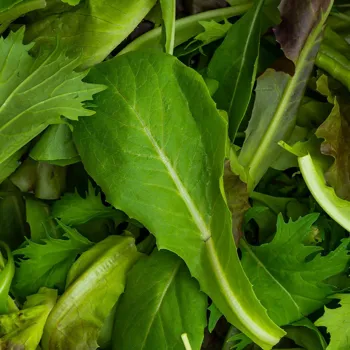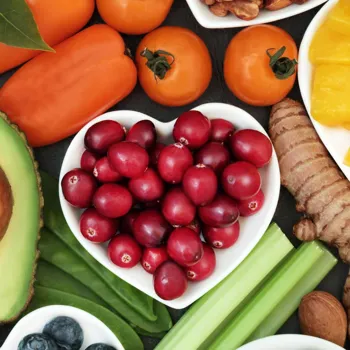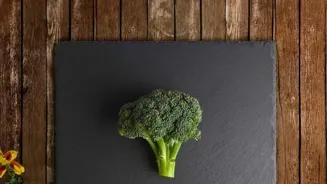Unlock the Power of Fiber: Why You Need More Greens in Your Diet! Dive into 7 reasons to prioritize fiber-rich foods for a healthier you
In the hustle-bustle of our daily lives, many of us tend to overlook
the small but mighty components of a healthy diet. Among these, fiber stands out as a nutritional powerhouse, often underestimated but crucial for our overall well-being.

Fiber, that indigestible part of plant-based foods, plays a vital role in keeping our digestive system smooth, our hearts healthy, and even our weight in check.
So, let's dive into the wonderful world of fiber and discover why loading up on greens is one of the best things you can do for your health.
Smooth Sailing for Your Digestive System
Think of fiber as the broom that sweeps your digestive tract clean. It adds bulk to your stool, making it easier to pass and preventing constipation. A high-fiber diet can also help prevent diverticulitis, a condition where small pouches form in the colon and can become inflamed.

Soluble fiber, found in foods like oats and beans, absorbs water and forms a gel-like substance, slowing down digestion and preventing diarrhea. Keeping your gut happy is key, and fiber is definitely the captain of that ship. Eating lots of fibre also helps in avoiding other stomach issues.
Heart Health Hero
Fiber is a true friend to your heart. Soluble fiber, in particular, has been shown to lower levels of "bad" cholesterol (LDL) in the blood. By binding to cholesterol in the digestive tract, fiber helps prevent it from being absorbed into the bloodstream.

This, in turn, reduces the risk of heart disease and stroke. A fiber-rich diet can also help lower blood pressure and improve overall cardiovascular health.
Including fiber-rich foods like fruits, vegetables, and whole grains in your daily meals is a simple yet effective way to show your heart some love.
Weight Management Wonder
Struggling to maintain a healthy weight? Fiber can be your secret weapon. High-fiber foods are generally more filling than low-fiber foods, meaning you feel fuller for longer after eating them. This can help you control your appetite and reduce your overall calorie intake.
Fiber also slows down the absorption of sugar from your digestive tract, preventing spikes in blood sugar levels that can lead to cravings and overeating. So, loading up on fiber can not only help you shed those extra kilos but also keep them off in the long run.
Blood Sugar Balance
For individuals with diabetes or those at risk of developing it, fiber is an invaluable ally. As mentioned earlier, fiber slows down the absorption of sugar, preventing rapid spikes in blood sugar levels.
This helps to improve insulin sensitivity and maintain stable blood sugar levels throughout the day. Including fiber-rich foods in your diet can reduce the need for medication and lower the risk of developing complications associated with diabetes.
This is especially important, making it a very useful component in our diet.
Gut Microbiome Booster
Our gut is home to trillions of bacteria, both good and bad. Fiber, especially prebiotic fiber, acts as a food source for the beneficial bacteria in our gut.
These bacteria ferment the fiber, producing short-chain fatty acids (SCFAs) that have a variety of health benefits, including reducing inflammation, improving gut barrier function, and boosting the immune system.
A healthy gut microbiome is essential for overall health, and fiber plays a crucial role in nurturing it. One must always remember that gut health is very important
Cancer Prevention Potential
While research is ongoing, studies suggest that a high-fiber diet may help reduce the risk of certain types of cancer, particularly colon cancer. Fiber helps to move waste through the colon more quickly, reducing the amount of time that harmful substances are in contact with the colon lining.
SCFAs produced by gut bacteria during fiber fermentation also have anti-inflammatory and anti-cancer properties. While fiber is not a magic bullet, it can be a valuable part of a cancer-preventive lifestyle. It is an important aspect of healthy diet and should not be ignored.
Foods Rich in Fiber
Now that you know why fiber is so important, let's talk about where to find it.
Here are some excellent sources of fiber to include in your diet:
Fruits: Apples, bananas, berries, pears, oranges
Vegetables: Broccoli, spinach, carrots, Brussels sprouts, sweet potatoes
Legumes: Beans, lentils, chickpeas, peas
Whole Grains: Oats, brown rice, quinoa, whole wheat bread
Nuts and Seeds: Almonds, chia seeds, flaxseeds, sunflower seeds
Aim to incorporate a variety of these foods into your daily meals to ensure you're getting enough fiber.
Remember to gradually increase your fiber intake to avoid digestive discomfort. Also, drink plenty of water to help the fiber move smoothly through your system.
So, there you have it: seven compelling reasons to load up on greens and other fiber-rich foods.
By making fiber a priority in your diet, you can reap a wide range of health benefits, from improved digestion to a healthier heart and a stronger immune system. These were some crucial points that explains the benefits of incorporating fibre into our daily diet.














